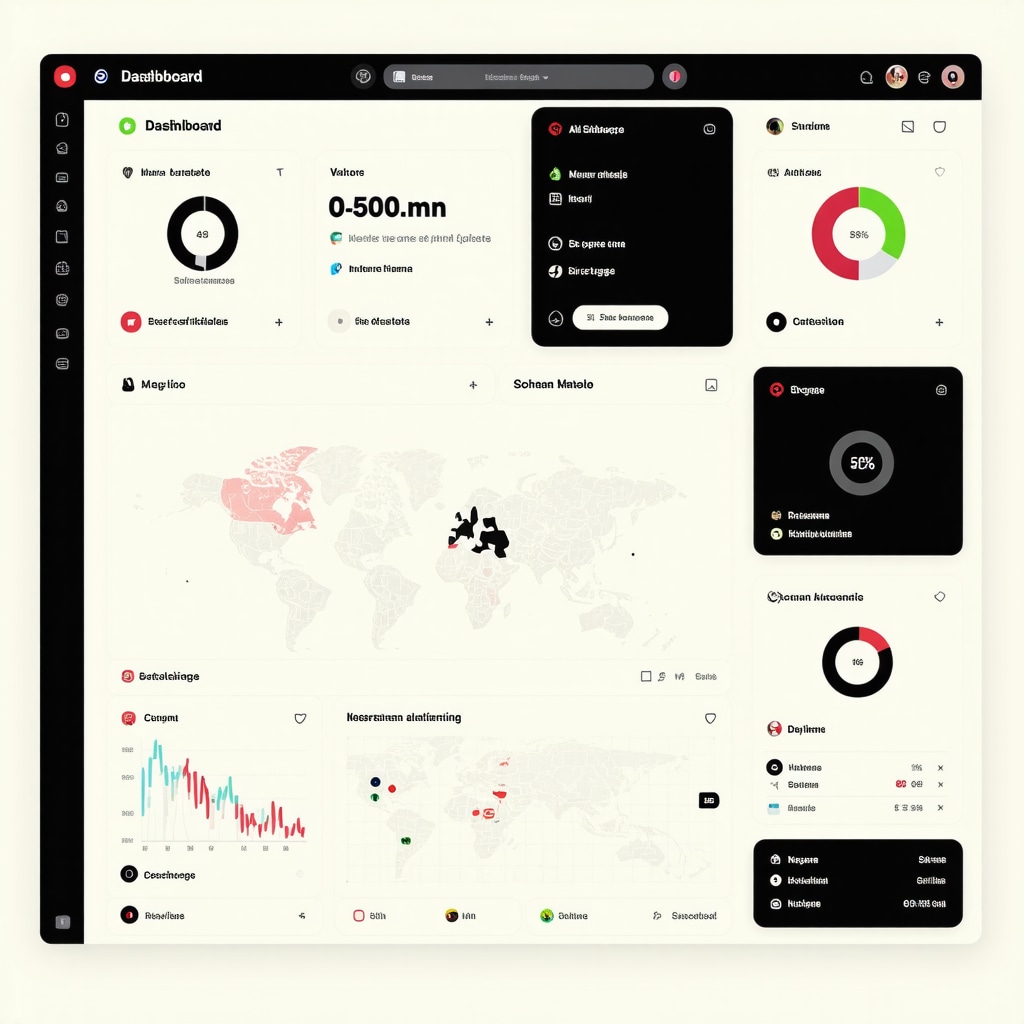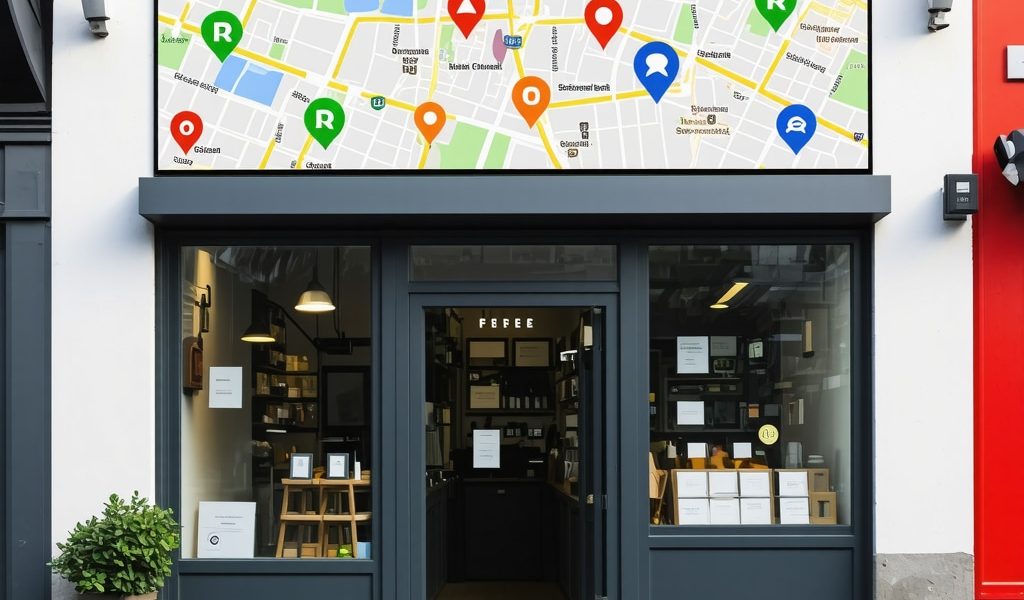Why Weekly Google My Business Updates Can Transform Your Local SEO Game
In the fiercely competitive arena of local search, the difference between appearing on the coveted Google Maps 3-pack or languishing on page two often hinges on the freshness and relevance of your Google My Business (GMB) profile. Weekly updates to your GMB listing are not merely a routine task but a strategic lever that can elevate your local SEO rankings significantly. By consistently refreshing your business information, posting timely offers, responding to reviews, and adding high-quality photos, you signal to Google that your business is active and engaged with its community. This, in turn, enhances your visibility to potential customers searching nearby.
Unlocking the Power of Consistency: How Regular GMB Posts Influence Local Ranking Signals
Google’s local search algorithm values consistency and user engagement heavily. Weekly GMB updates act as a dynamic content stream that keeps your profile vibrant. For example, a local bakery updating its daily specials, customer testimonials, and seasonal promotions weekly not only attracts more clicks but also increases dwell time on its profile. This practical approach demonstrates to Google that the business is relevant and trustworthy, leading to better positioning in local search results. Incorporating Latent Semantic Indexing (LSI) keywords naturally in posts—such as “fresh pastries,” “artisan bread near me,” or “local bakery deals”—can further optimize your profile’s discoverability.
What Are the Most Effective Types of Weekly Updates for Maximizing Local SEO Impact?
Expert SEO practitioners recommend a mix of updates including event announcements, new product launches, customer reviews responses, and frequently asked questions. For instance, responding promptly to reviews each week not only builds customer trust but also triggers algorithmic signals that improve ranking. Additionally, adding geo-tagged photos and videos weekly can boost your profile’s engagement metrics. Leveraging Google Posts to highlight limited-time offers or community involvement stories can differentiate your business from competitors. These tactics go beyond basic listing management to create a rich, interactive experience that Google rewards.
Real-World Success: Case Study of a Local Service Business Leveraging Weekly GMB Updates
A plumbing company in Chicago experienced a 30% increase in local leads within three months after adopting a disciplined weekly update strategy on its GMB profile. By posting weekly maintenance tips, responding to reviews, and updating business hours during holidays, the company maintained steady engagement and improved its local map pack rankings. This practical example underscores how integrating frequent updates into your local SEO plan can yield measurable business growth. For actionable guidance tailored to your business, explore our comprehensive approach to Google Business listing optimization here.
Embracing the Latest Trends: How Google’s Algorithm Updates Influence Your Weekly GMB Strategy
Google frequently refines its local search algorithm to prioritize user experience, relevance, and business authenticity. Staying ahead requires vigilance with weekly updates that reflect these changes, such as adding COVID-19 safety measures, highlighting online booking options, or updating delivery services. Aligning your GMB content with these evolving priorities not only satisfies user intent but also leverages Google’s enhanced understanding of local business contexts, ultimately driving better rankings. Trusted industry sources like Moz provide ongoing insights into these algorithm shifts, which can be invaluable for refining your local SEO tactics (Moz Local SEO Guide).
Ready to elevate your Google My Business presence? Share your experiences with weekly GMB updates in the comments below or explore our expert tips on how to use GMB content updates effectively to engage your local audience.
Leveraging User-Generated Content: The Next Frontier in Weekly GMB Updates
One of the most powerful yet underutilized tactics in weekly Google My Business updates is the strategic incorporation of user-generated content (UGC). Encouraging customers to share photos, videos, and stories related to your products or services can significantly amplify your local SEO impact. When these authentic contributions are regularly featured on your GMB listing, they not only enhance engagement metrics but also build social proof that resonates with prospective clients. By combining UGC with timely responses and highlighting it through Google Posts, businesses can create a vibrant community presence that Google’s algorithm favors.
How Can Advanced Geo-Targeting Enhance Your Weekly GMB Update Strategy?
Integrating precise geo-targeting into your weekly updates pushes your local SEO efforts beyond basic optimization. By tailoring posts, offers, and images to specific neighborhoods or nearby landmarks, your GMB listing becomes hyper-relevant to localized search queries. For example, a restaurant might highlight a special menu item inspired by a local event or a limited-time offer exclusive to residents in a particular district. This level of granularity not only increases click-through rates but also signals to Google a deep contextual relevance, boosting your rankings in hyperlocal search results.
What Are the Practical Tools and Technologies for Managing Weekly GMB Content Efficiently?
Managing consistent weekly updates across multiple locations or listings can be daunting without the right tools. Platforms like BrightLocal, Moz Local, and SEMrush offer comprehensive solutions for scheduling posts, monitoring reviews, and analyzing performance metrics. These tools automate repetitive tasks, ensure timely responses to customer interactions, and provide actionable insights that refine your content strategy. Utilizing such technologies allows businesses to maintain an active and optimized GMB presence without overwhelming internal resources.
For a detailed exploration of tools and techniques to streamline your Google Business updates, visit our guide on using BrightLocal for GMB success.
Incorporating Data-Driven Insights: Measuring the ROI of Weekly GMB Updates
While frequent updates are beneficial, understanding their direct impact on your business’s bottom line is crucial. Tracking key performance indicators (KPIs) such as profile views, click-to-call rates, direction requests, and conversion rates provides quantifiable evidence of your SEO strategy’s effectiveness. Leveraging Google My Business Insights alongside third-party analytics platforms enables businesses to draw correlations between specific update types and customer actions. This data-driven approach empowers marketers to refine content priorities, optimize posting schedules, and allocate resources efficiently.
According to a recent study by Search Engine Journal, businesses that track and optimize their GMB activities experience up to a 25% higher lead conversion rate compared to those that do not actively monitor performance (Search Engine Journal, 2024).
Integrating Weekly GMB Updates with Broader Local SEO Tactics for Maximum Impact
Weekly Google My Business updates should not operate in isolation. They work best as part of a comprehensive local SEO ecosystem that includes citation management, backlink strategies, and on-site optimization. For instance, ensuring your NAP (Name, Address, Phone number) consistency across top citation directories complements your GMB efforts and reinforces local search authority. Additionally, embedding geo-targeted keywords and schema markup on your website can synergize with your GMB content to enhance overall search visibility.
Explore our resources on expert GMB citation services and comprehensive local SEO optimization techniques to build a robust local presence.
Decoding AI-Driven Analytics: Elevating Weekly GMB Updates to the Next Level
Artificial Intelligence (AI) is no longer a futuristic concept but an indispensable asset in the local SEO toolkit. Integrating AI-powered analytics into your weekly Google My Business update strategy enables precision targeting, predictive insights, and adaptive content optimization. By analyzing user interaction patterns, sentiment in reviews, and competitive benchmarking, AI tools can recommend optimal post timing, content themes, and engagement techniques that resonate most with your local audience.
For example, AI algorithms can detect emerging trends within your community or sector and suggest incorporating relevant keywords or topical offers into your GMB posts. This dynamic approach transcends manual scheduling, transforming your updates into real-time, data-backed marketing touchpoints.
How Can AI Predictive Analytics Refine Your GMB Content Strategy for Hyperlocal Audiences?
Predictive analytics harnesses historical GMB performance data and external variables such as local events, weather changes, or socio-economic shifts to forecast customer behavior and search demand. This foresight allows businesses to tailor their weekly updates proactively rather than reactively. For instance, a fitness center using AI might discover a spike in searches for “outdoor yoga classes” during spring weekends in a specific neighborhood and promptly highlight related offerings in their GMB posts.
Such intelligent forecasting not only sharpens the relevance of your content but also maximizes engagement and conversion metrics by aligning with user intent before competitors do. Moreover, AI-driven sentiment analysis of customer reviews can pinpoint service strengths and pain points, guiding the focus of weekly updates to reinforce positive perceptions or address concerns transparently.
Integrating Advanced Schema Markup with Weekly GMB Updates to Amplify Local Search Visibility
Schema markup, a form of structured data, helps search engines better interpret the information on your business profile and website. Incorporating advanced, localized schema types related to events, offers, and FAQs in tandem with your weekly GMB updates dramatically enhances your chances of appearing in rich snippets or knowledge panels.
For instance, embedding Event schema on your website to sync with weekly GMB posts about local activities or promotions creates a cohesive and authoritative digital footprint. This layered approach not only improves crawlability but also enriches the user experience by delivering immediate, contextually relevant information directly in search results.
What Are the Best Practices for Synchronizing Weekly GMB Updates with Voice Search Optimization?
With voice search queries surging, especially on mobile devices, optimizing your weekly GMB content for conversational, natural language queries is critical. This includes using question-based phrases, long-tail keywords, and concise answers within your posts and FAQs. For example, instead of a generic post like “We offer car repair services,” a voice search-optimized update might be, “Need quick, reliable car repair in downtown Chicago? Visit us for same-day service!”
Google’s RankBrain algorithm favors content that matches the intent and conversational tone of voice searchers, making this adaptation crucial for capturing hyperlocal traffic. Additionally, maintaining updated business hours, holiday schedules, and service changes in your GMB profile ensures that voice assistants provide accurate, real-time information, directly impacting customer decisions.
Leveraging AI tools like Google’s Natural Language API can assist in crafting such optimized content by analyzing semantic relevance and readability, ensuring your weekly updates speak the language of your audience.
Ready to unlock the full potential of your Google My Business profile? Dive deeper into our expert strategies on AI-driven GMB update optimization and start transforming your local SEO today.
Strategic Synergy: Merging AI Insights with Schema Markup for Next-Level Local SEO
Integrating AI-driven analytics with advanced schema markup is revolutionizing how local businesses approach weekly Google My Business updates. AI tools analyze vast datasets to uncover nuanced consumer behaviors and emerging local trends, while schema markup translates this intelligence into structured data that enhances search engines’ comprehension of your content. This dual approach not only boosts your profile’s visibility through rich snippets and knowledge panels but also ensures your content dynamically aligns with hyperlocal user intent and preferences.
How Can AI-Enhanced Schema Markup Transform the Effectiveness of Weekly GMB Posts?
AI-powered platforms can recommend specific schema types—such as Offer, Event, or Review schemas—that correspond to your weekly update content, optimizing your listings for featured snippets and voice assistants. By leveraging predictive analytics, businesses can preemptively embed schema related to upcoming promotions or seasonal services, ensuring search engines highlight timely, relevant information. Additionally, AI-driven sentiment analysis can guide the strategic deployment of Review schemas to accentuate positive customer feedback within your GMB posts, amplifying social proof and trustworthiness.
Elevating User Engagement: Incorporating Interactive Elements through Advanced GMB Features
Beyond static updates, Google My Business now supports interactive features such as booking buttons, Q&A, and product catalogs. Incorporating these elements into your weekly updates can deepen user engagement and streamline the customer journey. For example, integrating a “Book Now” button directly within weekly posts for service-based businesses removes friction and increases conversion potential.
According to the Google Structured Data Documentation, utilizing correct schema types not only enhances search result appearance but also improves click-through rates by providing users with actionable information upfront.
Advanced Automation: Streamlining Weekly GMB Updates with AI-Powered Scheduling and Optimization
Implementing AI-driven automation solutions allows for intelligent scheduling of weekly posts based on peak user engagement times derived from historical data and local behavioral patterns. These systems can dynamically adjust content themes and calls-to-action to resonate with evolving customer interests, ensuring your updates remain timely and impactful without constant manual oversight.
This technology also facilitates A/B testing of different post formats and messaging, providing granular insights into what drives the highest local engagement and conversions.
Integrating Augmented Reality (AR) and Virtual Tours in Weekly GMB Content
Emerging trends in local SEO include embedding AR experiences and virtual tours within GMB profiles. Weekly updates featuring 360-degree tours or AR-enhanced product demos can captivate users, increase dwell time, and foster stronger emotional connections with your brand. As these formats gain traction, Google’s algorithms increasingly reward businesses that offer immersive and informative content.
Driving Continuous Improvement: Leveraging Feedback Loops and AI-Generated Insights for Weekly Optimization
Advanced marketers employ continuous feedback loops, where AI aggregates data from user interactions, reviews, and local competitor analysis to iteratively refine weekly GMB update strategies. This ensures content remains aligned with shifting market dynamics and customer expectations, maintaining a competitive edge in local search.
Are you ready to elevate your Google My Business strategy by integrating AI, schema markup, and interactive features into your weekly updates? Connect with our SEO experts today to unlock bespoke solutions tailored to your local market.

Frequently Asked Questions (FAQ)
Why are weekly Google My Business updates important for local SEO?
Weekly updates signal to Google that your business is active and engaged, which improves your local search rankings. They provide fresh content, increase user engagement, and demonstrate relevance and trustworthiness to both search engines and potential customers.
What types of content should I include in my weekly GMB updates?
Effective updates include event announcements, new product or service launches, responses to customer reviews, geo-tagged photos, limited-time offers, and frequently asked questions. Mixing these content types keeps your profile dynamic and user-friendly.
How can I leverage user-generated content in my GMB strategy?
Encourage customers to share photos, videos, and testimonials related to your business. Featuring this content regularly enhances authenticity, builds social proof, and boosts engagement metrics that Google favors.
What role does AI play in optimizing weekly GMB updates?
AI-powered analytics help identify optimal posting times, trending local topics, and customer sentiment. This enables you to tailor content proactively, forecast demand, and refine your strategy to maximize local engagement and conversions.
How does schema markup enhance the effectiveness of my GMB updates?
Advanced schema markup provides structured data to search engines, enabling rich snippets and knowledge panel features. When synchronized with your weekly posts, it improves search visibility and delivers immediate, contextually relevant information to users.
Can geo-targeting improve local SEO through GMB updates?
Yes. Tailoring posts and offers to specific neighborhoods or landmarks increases relevance for hyperlocal searches, boosts click-through rates, and signals to Google a deep contextual connection with your target audience.
What tools can help manage weekly GMB updates efficiently?
Platforms like BrightLocal, Moz Local, and SEMrush offer scheduling, review monitoring, and performance analytics. These tools streamline content management and ensure consistent, timely updates across multiple listings.
How do weekly GMB updates integrate with broader local SEO strategies?
Weekly updates complement citation management, backlink building, on-site SEO, and NAP consistency efforts. Together, they create a cohesive local SEO ecosystem that reinforces authority and improves overall search rankings.
How can I optimize GMB updates for voice search?
Use natural, conversational language with question-based phrases and concise answers. Keep business hours and service information current, and leverage AI tools to craft content aligned with voice search intent for better discoverability.
What metrics should I track to measure the ROI of weekly GMB updates?
Key indicators include profile views, click-to-call rates, direction requests, and conversion rates. Utilizing Google My Business Insights and third-party analytics enables data-driven refinements to your update strategy.
Trusted External Sources
1. Moz Local SEO Guide: Provides authoritative insights into local SEO best practices, algorithm updates, and effective GMB optimization strategies essential for maintaining competitive local rankings.
2. Google Structured Data Documentation: An essential resource detailing schema markup standards that improve search engine understanding and enhance the appearance of your business listings.
3. Search Engine Journal: Offers up-to-date research, case studies, and expert analyses on Google My Business optimization and local SEO performance measurement.
4. BrightLocal Blog and Tools: Specializes in local SEO auditing, review management, and GMB content scheduling, providing practical tools and insights for efficient profile management.
5. Google My Business Help Center: The official source for GMB features, updates, and guidelines directly from Google, ensuring compliance and leveraging new functionalities promptly.
Conclusion
Weekly Google My Business updates are a critical pillar in mastering local SEO competitiveness. By consistently refreshing your profile with engaging, relevant, and geo-targeted content—augmented by AI-driven insights and advanced schema markup—you significantly enhance your visibility and customer engagement. The integration of interactive GMB features, user-generated content, and voice search optimization further elevates your local presence, driving measurable growth in leads and conversions. Combining these updates with a broader local SEO strategy creates a robust, authoritative footprint that Google rewards.
Empower your business to thrive in the dynamic local search landscape by implementing these expert strategies today. Share your experiences, comment with questions, and explore our comprehensive resources to continue advancing your Google My Business mastery.



